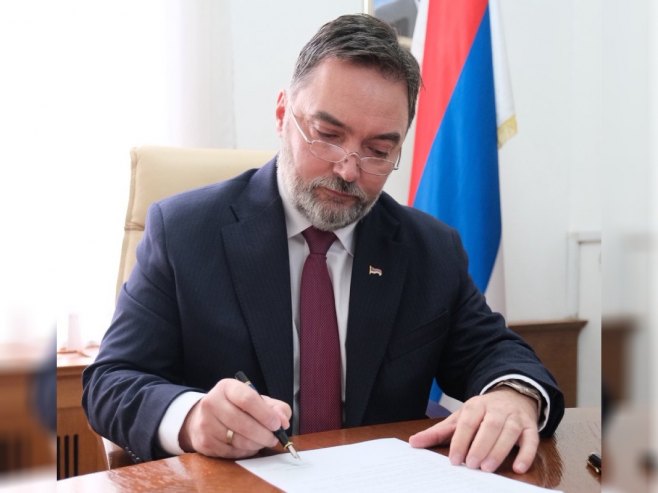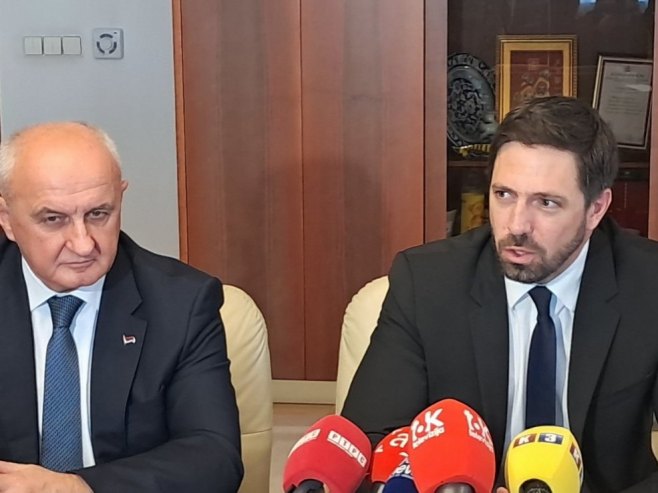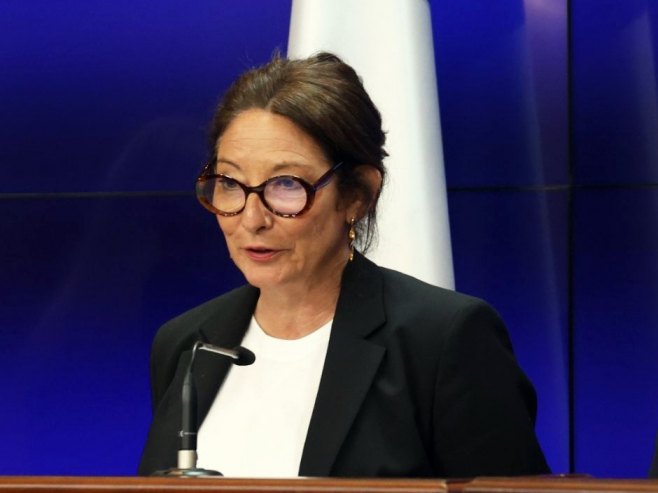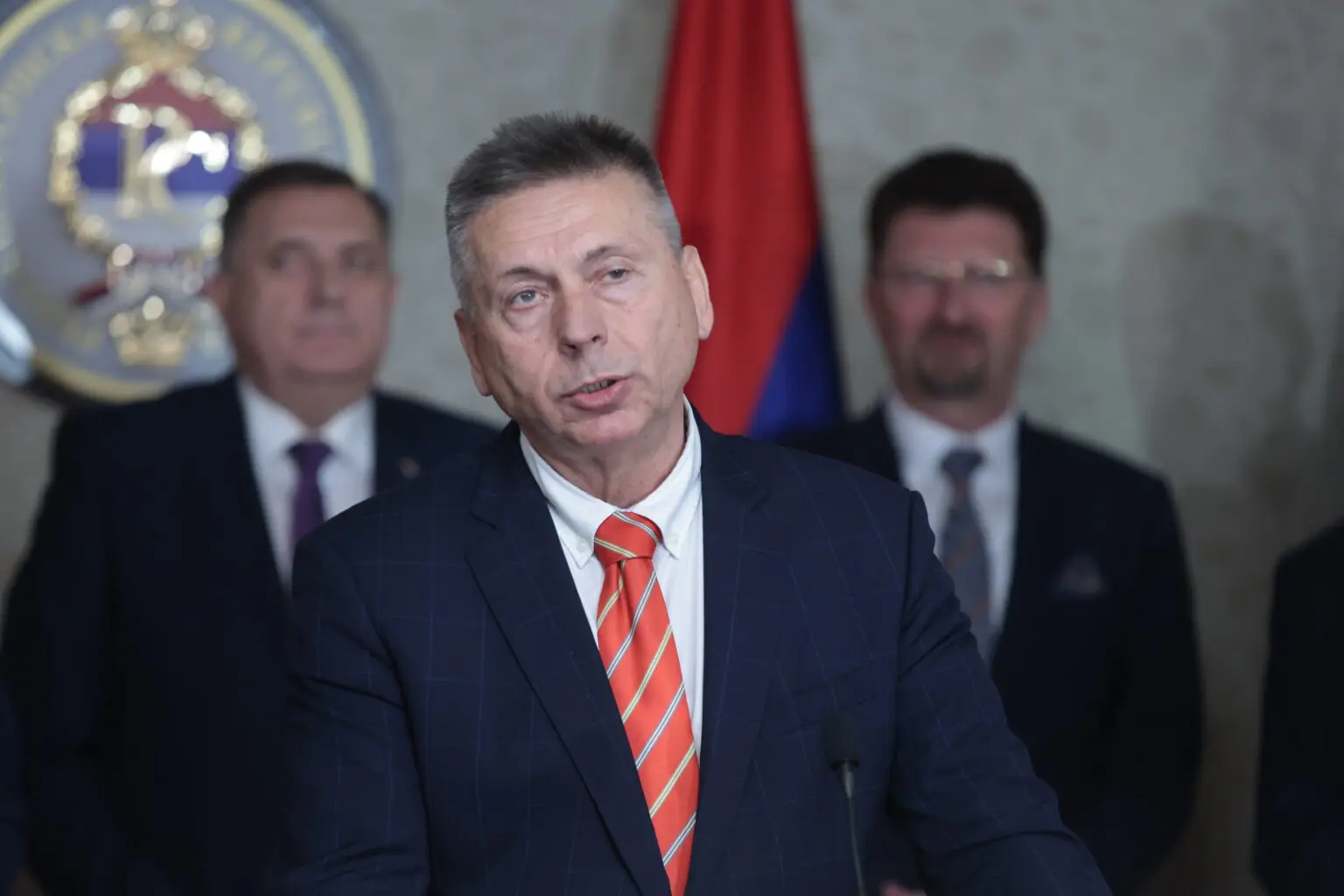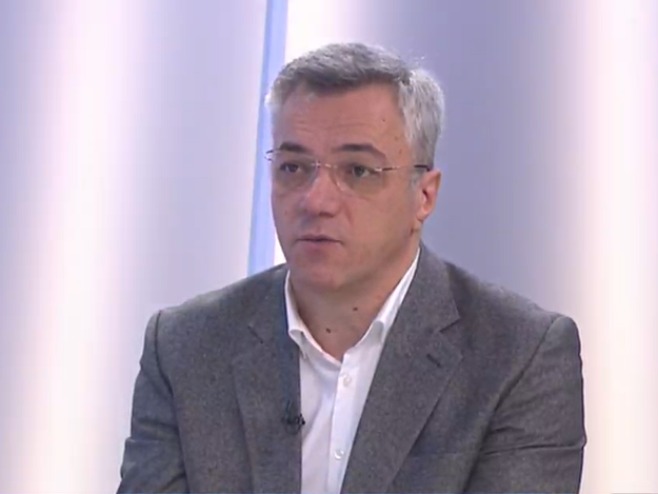The international and political position of Republika Srpska is stronger, said Hungarian Deputy Minister of Foreign Affairs Levente Magyar in Banja Luka after meeting with Minister Petar Đokić. He thanked Hungary for its understanding of the situation in Srpska and its insistence on respecting the Dayton Agreement. The meeting also discussed potential cooperation between Hungary and Srpska in the field of energy.
Every visit to Banja Luka reaffirms the cooperation and friendship between Hungary and Republika Srpska, as well as Budapest’s political support and understanding of Srpska’s position. In recent days, Srpska’s international and political standing has improved, noted Magyar, pointing out that U.S. President Donald Trump contributed to easing Western political attitudes toward Srpska.
“Republika Srpska and Hungary have both taken steps to improve the international perception of Srpska. The results of these efforts are already visible, and more progress will follow,” said Magyar.
Minister Petar Đokić expressed gratitude to Hungary and Prime Minister Viktor Orbán for their continued support in protecting Srpska’s political integrity.
“We are deeply grateful, as representatives of the authorities of Republika Srpska, for everything Hungary and Prime Minister Orbán have done for us — for their understanding, support, and special assistance. Through such a policy, Hungary contributes greatly to the consistent implementation of the Dayton Agreement,” Đokić emphasized.
Republika Srpska is committed to enhancing cooperation with Hungary in the fields of energy and mining. The goal is partnership in projects such as the “Hrgud” wind power plant and the Trebinje 1 and 2 solar power plants. For the first time, the possibility of building nuclear power plants in Srpska was mentioned — an area in which Hungary has long-standing experience.
“This requires extensive preparation, a long construction period, and careful commissioning, but we jointly agree that building such an energy facility would bring multiple benefits to both Republika Srpska and Hungary,” Đokić said.
Magyar explained that modular nuclear reactors are not the same as large traditional nuclear plants, but represent smaller, modular technologies.
“Hungary is considering adopting such plants and is discussing the matter in cooperation with the U.S. government,” he added.
Talks will continue in the coming period on the exploitation of rare minerals. All joint projects in the fields of energy and mining are envisioned as long-term strategic endeavors.
Source: RTRS
